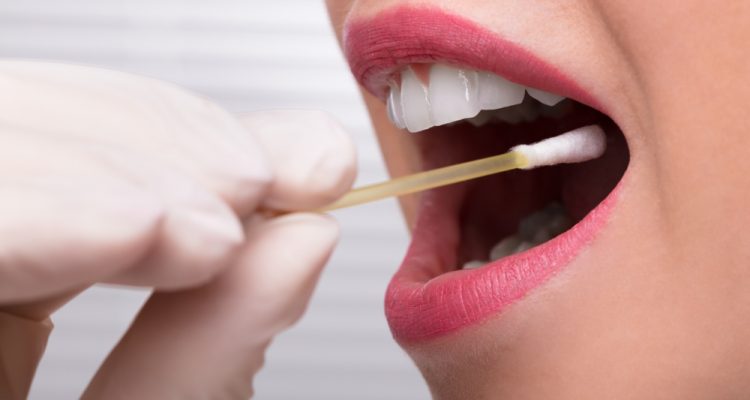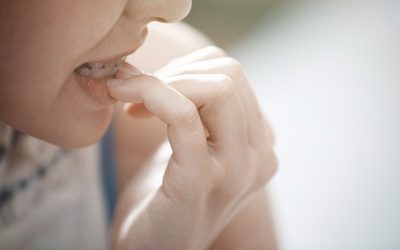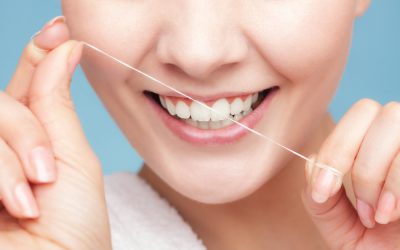Every day, your body produces a constant flow of saliva that helps you chew, swallow, and speak without difficulty. Saliva also enhances the taste of all the delicious foods you enjoy.
Saliva – or spit – is a bodily fluid that is 99% water and 1% electrolytes and proteins. While you produce a small and steady flow at rest, most saliva is stimulated by chewing. The flow is also stimulated by smelling something appetizing – that’s why you call it a mouthwatering aroma.
And even though you spend your days not thinking about saliva, it works around the clock to keep your mouth healthy and clean. In fact, it performs several essential functions for good oral health.
Seven Ways Saliva Helps Keep Your Mouth Healthy
- It aids in digestion. Saliva helps moisten and soften food to make it easier to swallow. Additionally, it contains enzymes that start the process of breaking down sugars and starches for digestion.
- It removes food particles and bacteria from your mouth. Saliva helps keep your mouth clean by washing out leftover food and bad bacteria. Food particles and bacteria that remain trapped in your mouth contribute to tooth decay over time.
- It prevents bacterial growth. Saliva has antimicrobial properties that break down bacterial cells and block bacterial growth. Lingering bacteria in your mouth causes bad breath, so saliva helps prevent nasty odors as well.
- It neutralizes acids that cause tooth decay. When you eat, oral bacteria feed on the sugars in food and produces damaging acid. The pH level in your mouth drops and the environment becomes more acidic. When the pH level drops low enough, the acid eats away tooth enamel and causes tooth decay. Saliva helps neutralize the acidity in your mouth by releasing a bicarbonate buffer that raises the pH level and brings it back into balance. If the term “bicarbonate” sounds familiar, you may recognize it from a household product commonly used for teeth cleaning and plaque removal – baking soda.
- It strengthens tooth enamel. Saliva contains calcium, fluoride, and phosphate ions that re-mineralize and strengthen tooth enamel.
- It protects the mucous membrane and soft oral tissues. Saliva keeps your soft tissues lubricated and hydrated. It helps the mucous membrane maintain an impermeable waterproof barrier that prevents toxins, smoke, and other irritants from aggravating the sensitive oral tissues.
- It helps diagnose disease. Saliva is used in medical testing to diagnose oral disease, systemic disease, and hormonal imbalances. It’s also used for rapid HIV testing. The full diagnostic capacities of saliva are still being tested.
What Causes Dry Mouth?
The medical term for dry mouth from reduced saliva production is xerostomia. There are many factors that can cause dry mouth, including some autoimmune disorders, dehydration, medications, radiation therapy, old age, or a salivary gland disorder.
If you have dry mouth, you may experience the following: swollen and uncomfortable gums, thirst, difficulties chewing, swallowing, and speaking, altered sense of taste, and bad breath. Persistent dry mouth increases your risk for cavities, gum disease, oral thrush, and other oral infections.
See your dentist for a check-up if you experience frequent dry mouth. At home, you can try chewing sugar-free gum, drinking water, eating more fibrous foods and limiting your intake of alcohol and caffeine to keep your oral cavity moist. In severe cases of dry mouth, your dentist may prescribe medication to increase saliva production.
Regular check ups with your dentist are an important part of keeping your oral health up to date. Along with checking for signs of cavities, gum disease, and oral cancer, your dentist routinely checks for signs of dryness in your mouth. If it’s time to schedule your next cleaning and exam, contact Boyett Family Dentistry today for appointment times.






